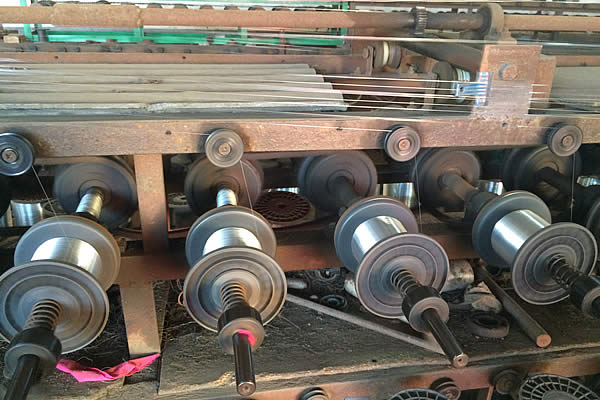 TEL:
+86-13102802206
TEL:
+86-13102802206
 Email:
fencenetting@china.com
Email:
fencenetting@china.com
 Language
Language
 TEL:
+86-13102802206
TEL:
+86-13102802206
 Email:
fencenetting@china.com
Email:
fencenetting@china.com
 Language
Language


The Versatility and Strength of Metal Wire Fences
Metal wire fences are a popular choice for a variety of applications, offering durability, strength, and versatility that few other fencing options can match. Whether used as residential boundary lines, agricultural enclosures, or security barriers, metal wire fencing provides an effective solution for many needs.
Types of Metal Wire Fences
Metal wire fences come in several varieties, each suited for different purposes. The most common types include chain link fences, welded wire fences, and barbed wire fences.
1. Chain Link Fences These are made from galvanized steel, providing a robust framework that is both flexible and strong. Chain link fences are widely used for residential properties, parks, and schools. Their open design allows visibility while still offering a secure boundary, making them ideal for both safety and aesthetic appeal.
2. Welded Wire Fences Composed of vertical and horizontal wires that are welded at each intersection, these fences create a strong and rigid barrier. They are often used for agricultural purposes, such as keeping livestock safe or enclosing gardens. The strength of welded wire fencing makes it a reliable choice for areas requiring a higher degree of security.
3. Barbed Wire Fences Typically used in agricultural settings, barbed wire fences consist of sharp barbs attached to strands of wire. They are particularly effective in keeping livestock contained and deterring intruders. While they may not be suitable for residential properties due to safety concerns, they are a staple in rural areas.
Advantages of Metal Wire Fencing

One of the most significant advantages of metal wire fencing is its durability. Unlike wooden fences that can warp, rot, or be subject to pest damage, metal wire fences are resistant to the elements and require minimal maintenance. Galvanization and coating techniques enhance corrosion resistance, extending the life of the fence significantly.
Additionally, metal wire fences are often more affordable than other fencing materials. When considering the long-term cost effectiveness, their longevity makes them a wise investment. The initial installation costs can be offset by the lack of need for frequent repairs or replacements.
Metal wire fences are also highly customizable. Depending on the purpose, property owners can choose from a variety of designs, heights, and coatings. This customization allows individuals to find a solution that meets their security and aesthetic needs without sacrificing functionality.
Installation Considerations
Installing a metal wire fence can be a straightforward process, but it does require careful planning. Before installation, it’s essential to check local regulations that may dictate fence height, materials, or placement. Property owners should also consider the type of soil and terrain, as this can impact the stability of fence posts.
Using appropriate tools and materials is crucial for a successful installation. Properly digging post holes, securing the wire, and ensuring tension across the fencing will prevent sagging and maintain security. For larger projects or those requiring specific features, hiring a professional may be beneficial.
Conclusion
Metal wire fences provide an effective solution for a range of fencing needs, combining strength, durability, and affordability. Their versatility makes them suitable for both residential and agricultural applications, ensuring that they meet various security and aesthetic requirements. With minimal maintenance and a long lifespan, investing in a metal wire fence offers peace of mind, allowing property owners to focus on what truly matters. Whether for privacy, safety, or property delineation, metal wire fencing stands the test of time, proving to be an excellent choice for any fencing project.